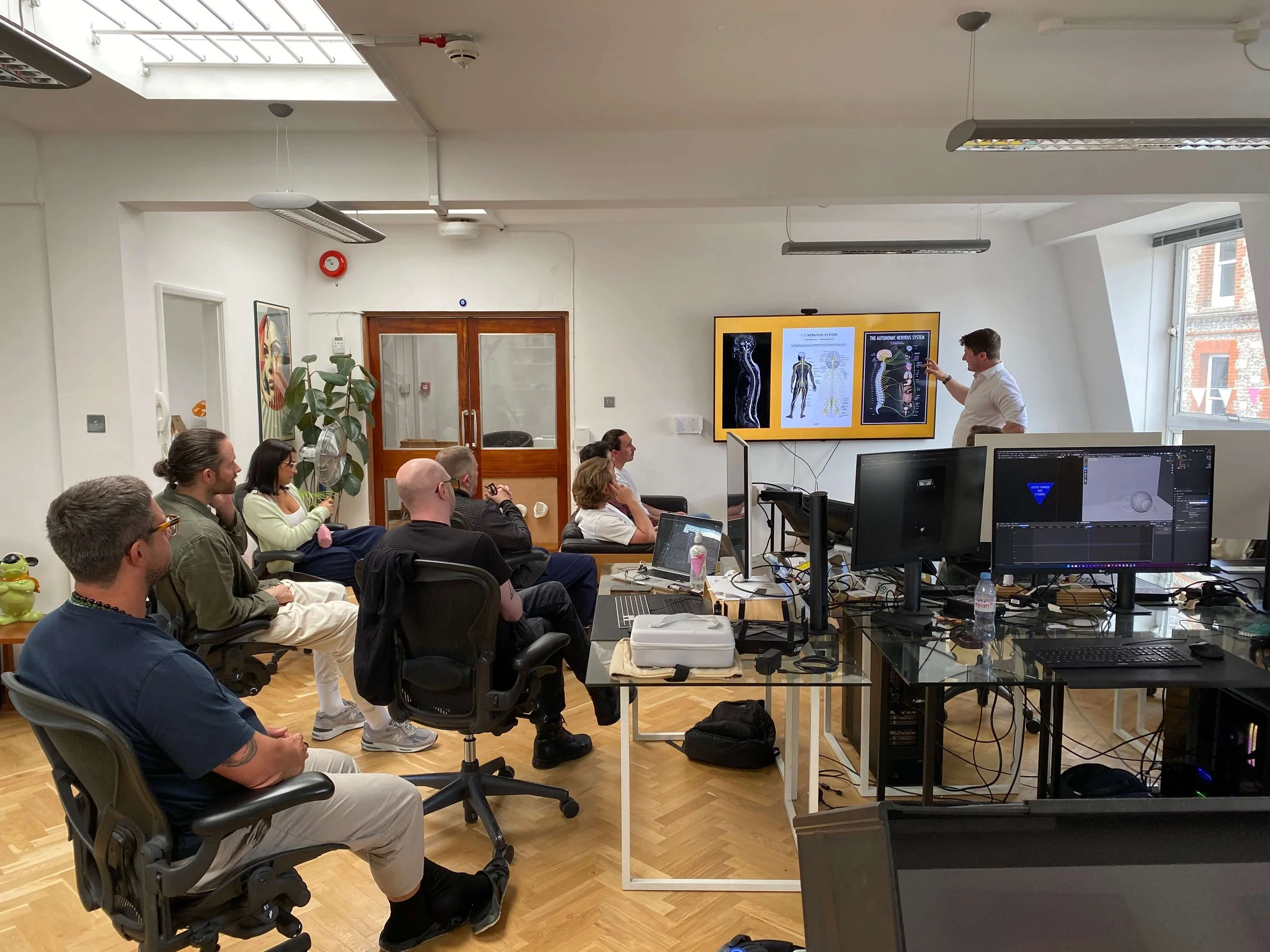5 Top Tips For Surviving Back Pain At Work
If you spend most of your day sitting at a desk, you're part of a staggering statistic: 4 out of 5 people will experience back pain during their lifetime. And in the UK, over 30 million working days are lost every year as a result of musculoskeletal issues. Regardless of whether you’re in a corporate office or home workspace, desk workers are particularly susceptible to developing chronic back issues due to extended periods of incorrect posture and limited movement.
Simply accepting back pain as an inevitable part of your professional life is not the answer. While some discomfort might resolve on its own, persistent pain could be a warning sign of a more serious underlying condition.
But don’t worry! We’ve collected a few effective strategies to keep you feeling good and working smoothly.
Get up and Move
We all know that when you sit in one spot for too long, everything starts to feel a bit stiff and sore.
There’s a reason for that; our bodies are made to move!
Long periods of sitting can put unnecessary pressure on your spine, leading to discomfort and pain. Set a timer to shake off and walk around every 45-60 minutes. Use these breaks to stretch or simply do some light movement. This could mean walking to a colleague's desk, using the bathroom, or going to the kitchen for a glass of water.
If you’re unable to walk around, it may be worth getting a standing desk or a sit-stand workstation that allows you to change positions throughout the day.
Remember, even small movements can significantly reduce the strain on your back and improve overall physical health.
Sit Up Straight
Ergonomic chairs and adjustable desks can help, but it’s key to be mindful of your posture throughout the day.
Imagine a straight line running from your ears through your shoulders, hips, and down to your ankles; this is your ideal alignment. Your computer screen should be at eye level, your feet flat on the floor, and your chair should support the natural curve of your spine. Each time you return to your desk after a stretch break, check your posture again.
Over time, you will train your body to maintain this alignment.
Manage Stress
Plain and simple, stress can wreak havoc on your back.
When you're stressed, your muscles tense up, particularly in your neck, shoulders, and back, creating a painful cycle of tension and discomfort.
Consider practicing quick relaxation techniques like deep breathing, meditation, or stretching between tasks to keep both your mind and body relaxed. If the situation allows, you could also listen to music or a podcast while you work.
Stay Active
Staying active is vital for maintaining a strong, flexible back. Even from behind a desk, you can incorporate movement into your daily routine.
Strength training exercises that target your core and back muscles, such as planks, bridges, and gentle back extensions are incredibly useful for managing back pain. Meanwhile, Yoga or Pilates can be particularly effective in building the muscle groups that support your spine. For further inspiration, we’ve compiled a list of helpful back exercises here.
Ideally, you should aim for at least 30 minutes of targeted exercise most days of the week, and if you need to, you can break it up into smaller sessions.
Recognising the Red Flags
Pay attention to these warning signs that might accompany your back pain:
Unexplained fever or chills
Persistent weakness in your arms or legs
Tingling or numbness in your extremities
Sharp, shooting pain that increases when sitting
Difficulty maintaining proper posture
Pain that radiates down your legs
Sudden changes in bladder or bowel function
These symptoms can indicate more serious conditions ranging from muscle strain to potential nerve compression or spinal issues. Early recognition is crucial for receiving appropriate treatment and preventing long-term damage to your spine and overall health.
How Can Life Effect Help?
At Life Effect, our team of chiropractors are determined to help you to regain control of your life. We start every consultation by getting to know you, what you want from your treatment, your concerns and the things you want to get back to doing. Only then, will we come up with a care plan that keeps you at the centre.
Not only will we get to the root cause of your back pain and discuss appropriate pain relief but we can prevent back pain in the long-term too. To book your free consultation or to discuss how we could help you, simply get in touch with our team.

